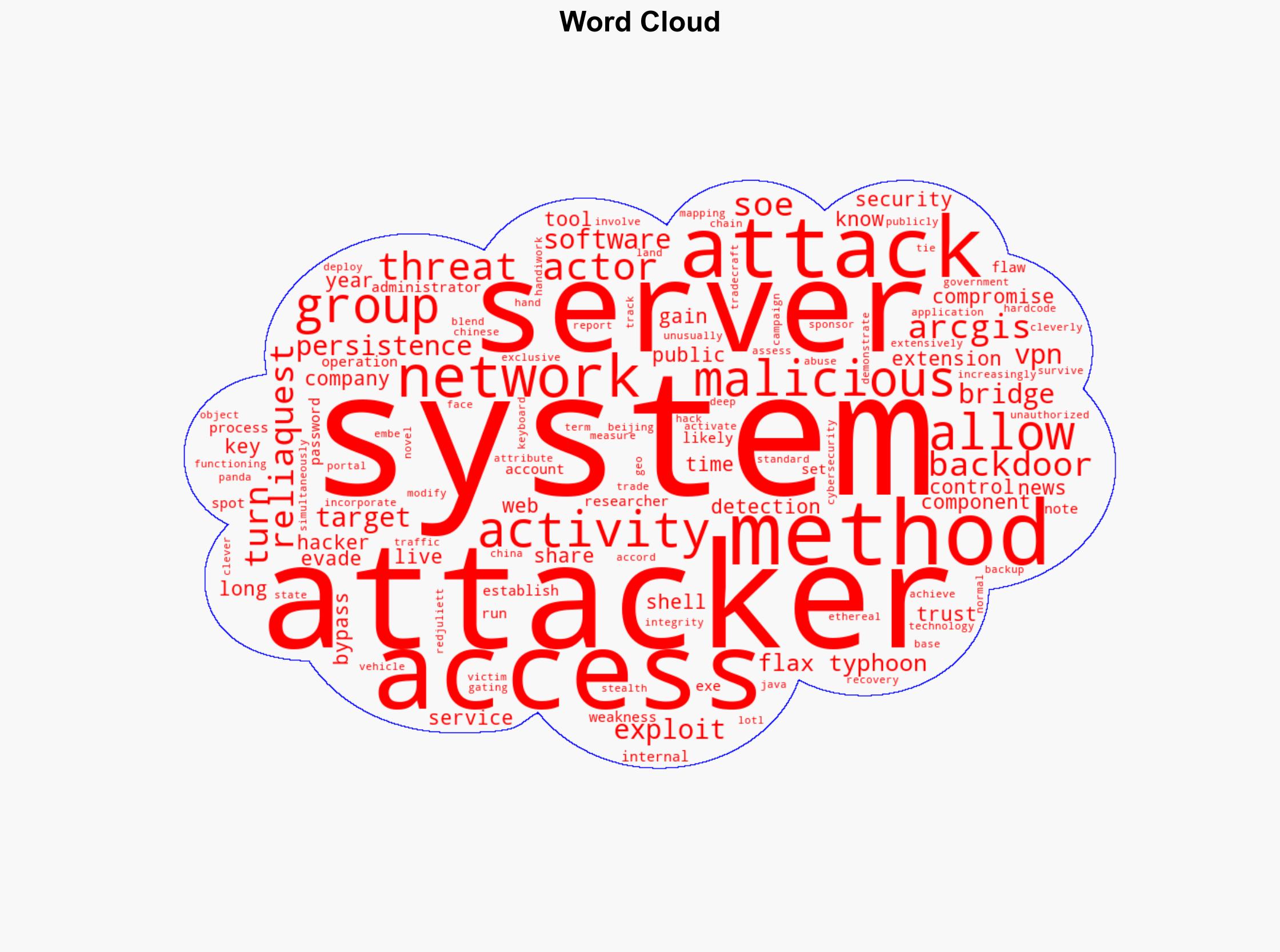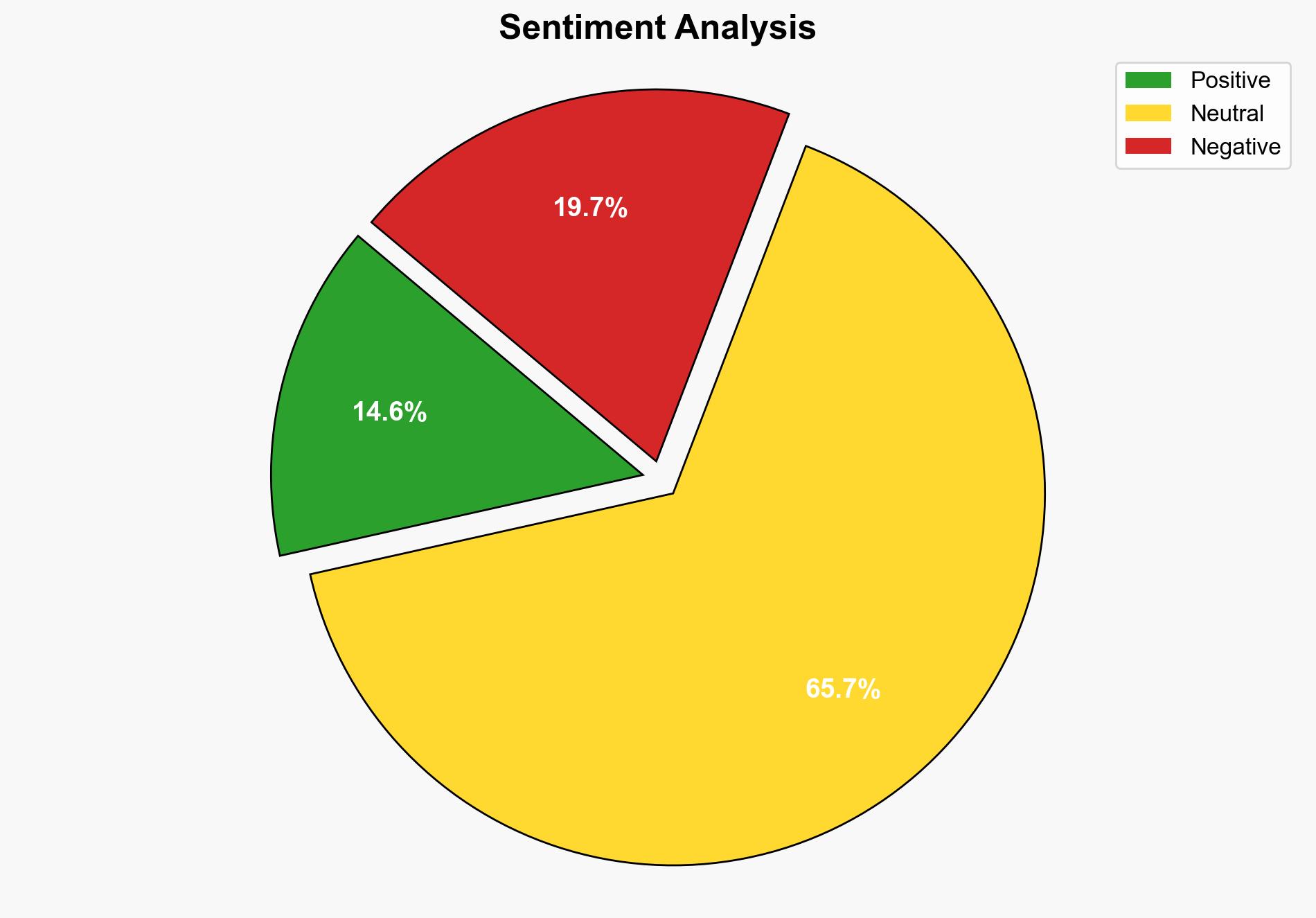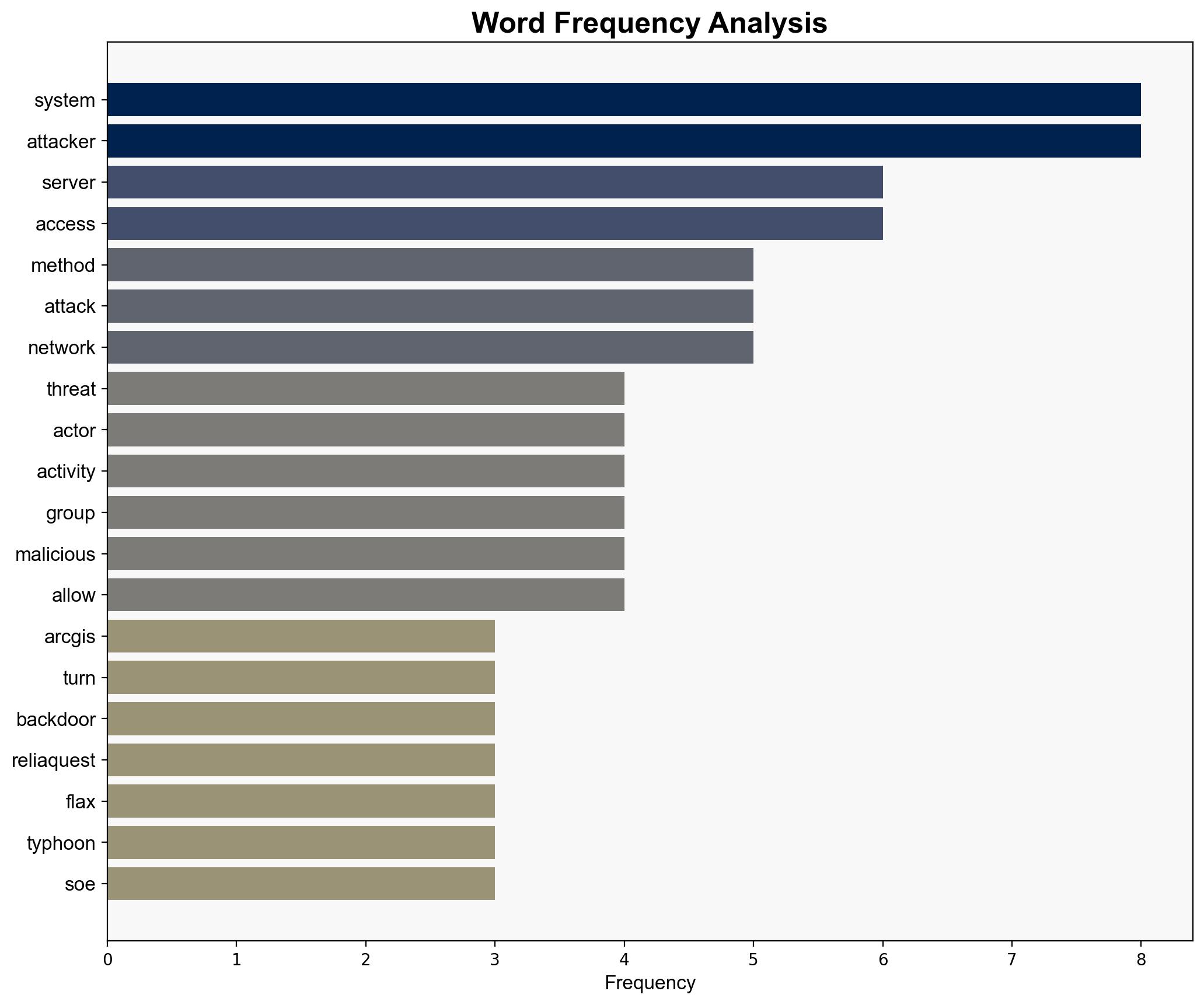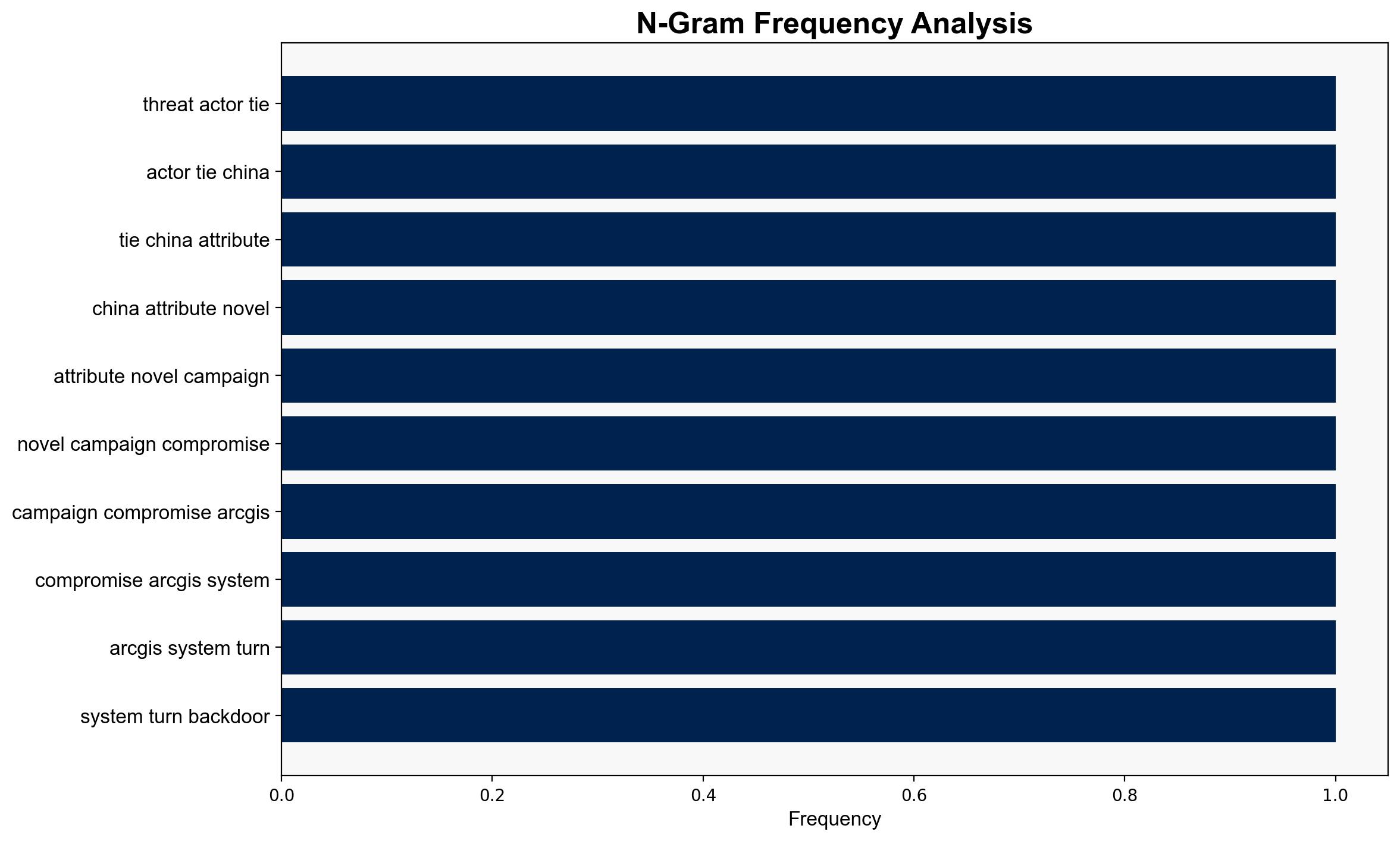Chinese Hackers Exploit ArcGIS Server as Backdoor for Over a Year – Internet
Published on: 2025-10-14
Intelligence Report: Chinese Hackers Exploit ArcGIS Server as Backdoor for Over a Year – Internet
1. BLUF (Bottom Line Up Front)
The most supported hypothesis is that the Chinese state-sponsored group, Flax Typhoon, has been exploiting ArcGIS servers to establish a persistent backdoor, leveraging trust in legitimate software to evade detection. Confidence level: High. Recommended action: Strengthen cybersecurity measures focusing on software integrity and anomaly detection in trusted applications.
2. Competing Hypotheses
Hypothesis 1: Flax Typhoon, a Chinese state-sponsored group, has been exploiting ArcGIS servers using sophisticated methods to maintain long-term access and conduct espionage activities. This hypothesis is supported by the group’s known tradecraft, including living-off-the-land techniques and the use of legitimate software components for malicious purposes.
Hypothesis 2: A non-state actor or independent hacker group is mimicking Chinese state-sponsored techniques to exploit ArcGIS servers, possibly to mislead attribution and conduct cybercriminal activities. This hypothesis considers the possibility of deception and the use of similar tactics by non-state actors to obscure their identity.
3. Key Assumptions and Red Flags
Assumptions:
– Flax Typhoon has the capability and intent to exploit ArcGIS servers.
– The use of legitimate software components is a deliberate tactic to evade detection.
Red Flags:
– Lack of direct evidence linking Flax Typhoon to the specific attack.
– Potential for misattribution due to the use of common hacking techniques.
– Absence of detailed information on initial access vectors and specific targets.
4. Implications and Strategic Risks
The exploitation of trusted software like ArcGIS poses significant risks, including:
– Increased vulnerability of critical infrastructure relying on such software.
– Potential for widespread espionage and data exfiltration across sectors.
– Escalation of cyber tensions between China and affected nations, potentially impacting diplomatic relations and economic stability.
5. Recommendations and Outlook
- Enhance monitoring of trusted software applications for anomalous behavior.
- Implement robust access controls and regular audits of administrative accounts.
- Develop incident response plans specifically addressing living-off-the-land techniques.
- Scenario Projections:
- Best Case: Improved detection and prevention measures significantly reduce the effectiveness of such attacks.
- Worst Case: Continued exploitation leads to major data breaches and geopolitical tensions.
- Most Likely: Incremental improvements in cybersecurity posture mitigate some risks, but persistent threats remain.
6. Key Individuals and Entities
– Flax Typhoon (Chinese state-sponsored group)
– Alexa Feminella
– James Xiang
– Integrity Technology Group
7. Thematic Tags
national security threats, cybersecurity, counter-terrorism, regional focus





